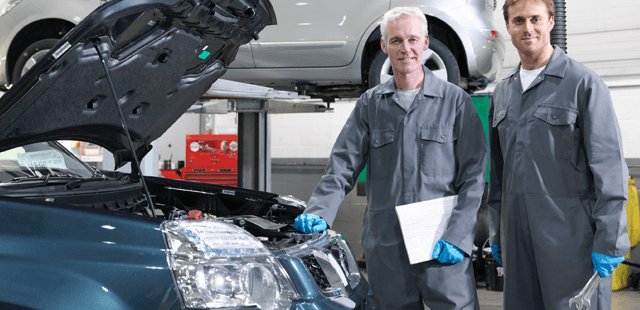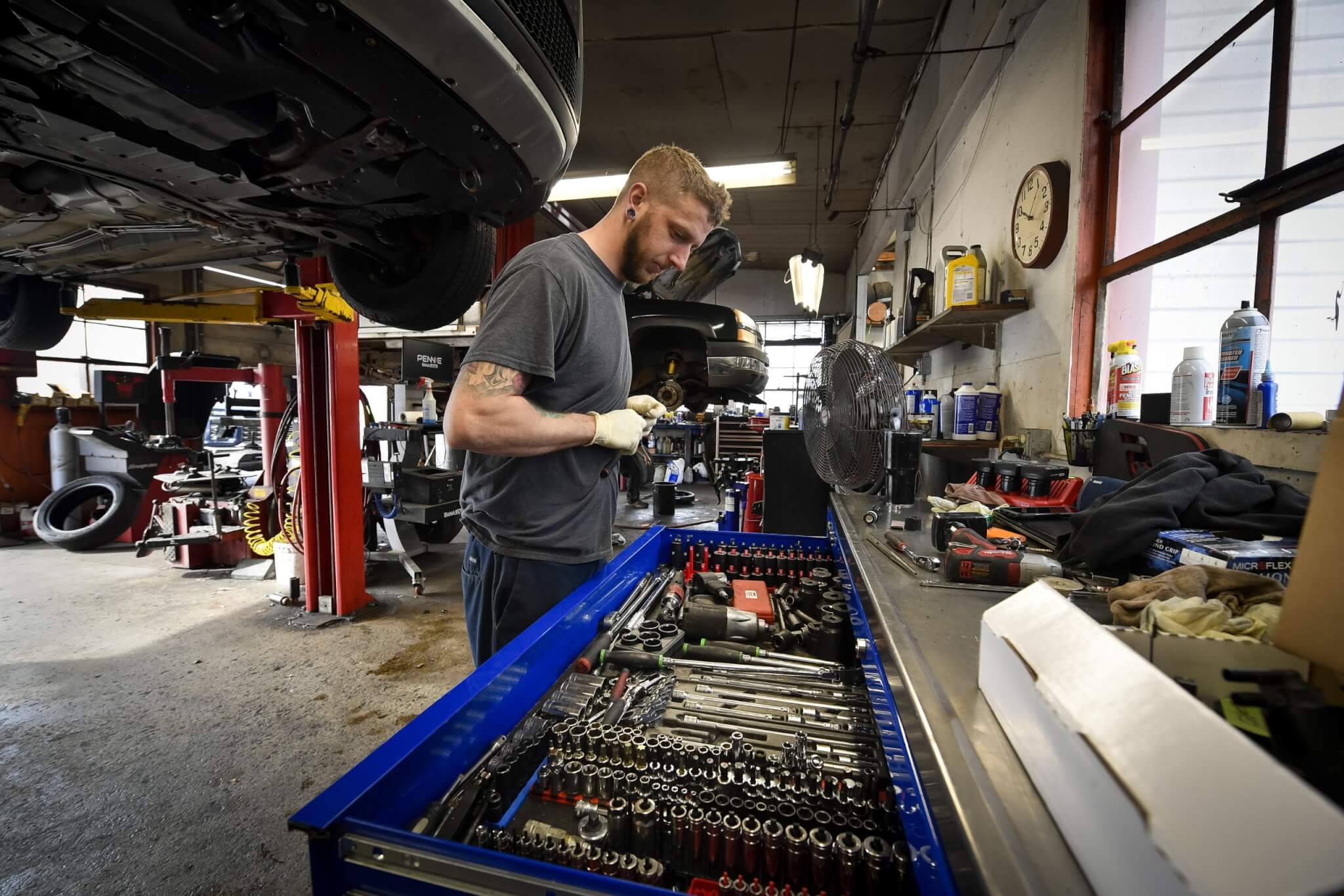All Categories
Featured

[/image]

When it comes to automobile maintenance, the brakes are perhaps the most vital system for ensuring your safety and security. Your brakes must work ideally to prevent accidents and react swiftly in emergency situations. Normal brake assessments are necessary to keeping your stopping system in leading problem. Understanding when and exactly how to evaluate your brakes can save you from dangerous circumstances and costly fixings in the future. Below's an overview to help you remain on top of brake assessments.
- Why Brake Inspections Are Important. Brakes are created to use down with time, yet without normal evaluations, you may not observe when they become much less effective. A malfunctioning brake system can bring about major accidents, enhanced repair work prices, and even the requirement to replace various other vehicle components.
Brake evaluations not only aid you capture possible problems before they escalate, but they additionally enable better stopping performance, raised vehicle lifespan, and enhanced security.
- Acknowledging Indication for Brake Troubles. While regular assessments are essential, you do not have to wait until your cars and truck's next see to the technician. Look for these indication that might indicate it's time for an assessment:
Uncommon Noises: A shrill screech or grinding noise when applying the brakes commonly indicates that the brake pads are used down or harmed. Soft or Spongy Brake Pedal: If the brake pedal really feels soft or spongy when pressed, there might be air or moisture in the brake lines, or the brake fluid might be low. Drawing away: If the lorry pulls to one side while braking, it might indicate unequal brake pad wear or a hydraulic concern in the brake system. Resonance in the Wheel or Pedal: If you experience resonance or pulsation when stopping, it might suggest distorted rotors or unequal brake pad wear. Increased Stopping Distance: If it takes longer than usual to bring your auto to a quit, it may be time to check the brake pads, fluid levels, or blades. If you discover any one of these indications, it's ideal to have your brakes examined promptly by a specialist.
- Secret Components Checked Throughout a Brake Inspection. Throughout a brake examination, a certified technician will certainly take a look at a number of crucial elements of the brake system to ensure they're operating effectively. Some of one of the most integral parts to inspect consist of:
Brake Pads: These are the friction material that presses against the brake rotor to reduce the car. Gradually, the brake pads wear down and require replacing. Brake Rotors: Rotors are the steel discs that the brake pads clamp down on. They need to be smooth and totally free of deep grooves or splits. Brake Fluid: The brake fluid moves the pressure from the pedal to the brakes. Low fluid levels or old, polluted liquid can cause poor stopping efficiency. Brake Lines: Brake lines bring liquid from the master cyndrical tube to the brake parts. They ought to be looked for leaks, splits, or damages. Brake Calipers: These secure the brake pads onto the blades. They must be in excellent working order and without leakages. Consistently checking these parts ensures your stopping system works smoothly and assists you stay clear of hazardous driving scenarios.
- Just how Usually Should You Get Your Brakes Inspected? The frequency of brake inspections relies on your driving practices and the sort of car you own. As a basic standard, it's suggested to evaluate your brakes at the very least when a year or every 12,000 miles. If you drive in hefty website traffic, often bring hefty loads, or drive on sloping surface, even more frequent assessments might be needed.
It's likewise a great concept to have your brakes inspected if you see any one of the indication discussed previously, as this can stop more severe problems.
- The Expense of Disregarding Brake Inspections. Disregarding normal brake inspections can lead to major repercussions. Worn brake pads, damaged blades, or reduced brake fluid can trigger your stopping system to fail when you require it most. In enhancement to the security dangers, ignoring brake maintenance can result in costly fixings later on.
As an example, if the brake pads are not replaced in time, the damage could encompass the rotors, leading to the need for rotor substitute-- a costly fixing. By scheduling routine brake inspections, you can avoid these pricey repair work and maintain your braking system in excellent condition for longer.

- What Happens Throughout a Brake Assessment? A specialist technician will certainly perform a thorough evaluation of your lorry's stopping system, including checking for the adhering to:
Brake Pad Thickness: Brake pads require to be replaced when they have actually put on down to a specific thickness. Blades Problem: The mechanic will certainly inspect the blades for signs of wear, bending, or scoring. Brake Fluid Degree: Low brake fluid can affect braking efficiency. The technician will certainly examine the fluid level and renew it if needed. Brake Line Stability: The brake lines will certainly be evaluated for any leaks or cracks that could endanger the brake system. As soon as the assessment is complete, the auto mechanic will educate you of any type of essential repair services or substitutes.
Final Thought: Keep Safe with Normal Brake Inspections. Your brakes are important to maintaining you and your passengers secure when driving, so normal brake examinations need to never be overlooked. By paying focus to indication, scheduling routine brake checks, and attending to concerns immediately, you can make certain that your brakes are constantly in leading form.
Don't wait up until your brakes fail-- stay positive about brake maintenance. A small financial investment in brake evaluations today can conserve you from expensive fixings and unsafe circumstances in the future.
Latest Posts
Check Out the Premier Auto Repair Deals in Montclare, Chicago
Check Out the Premier Auto Repair Discounts in Montclare, Chicago
Uncover Cost-Effective Auto Repairs with Montclare’s Monthly Service Specials